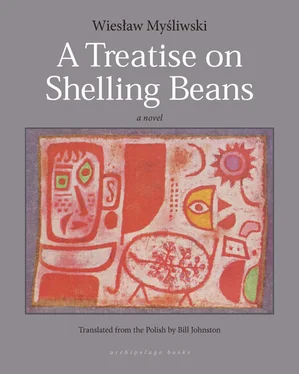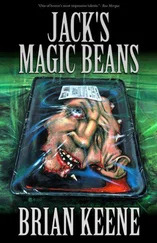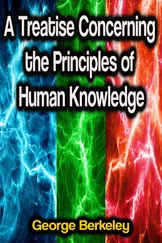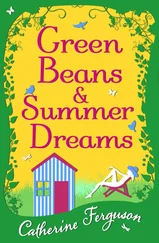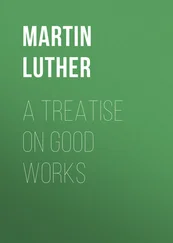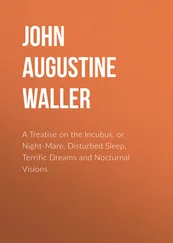One time he slapped someone in the face with his glove because they’d had the temerity to sit at his table. It would surely have ended in a duel, because the other man responded by throwing down his own glove, which meant he was demanding satisfaction. Fortunately the proprietor of the cafe picked the glove up and somehow managed to smooth things over.
After that incident a card was stuck in the napkin holder saying the table was reserved. But he never came back.
Then suddenly the other man said something that made me think:
“The proprietor of the cafe died. His son took over the place. Then his son after him. But on that table, in the napkin holder, the whole time there was a card to say the table was reserved. Perhaps if he’d known it was reserved, that it was waiting for him … Then war broke out, and before it ended the cafe was taken over by soldiers. They didn’t care whose table was whose, if one of them was reserved or not, because all the tables were theirs. They sat wherever they flopped down, they’d even put their feet up on the tables.”
All at once he asked me if I’d like some cake.
“Gladly,” I said, though I avoided cakes, just like I wasn’t supposed to drink coffee. At that time I had a duodenal ulcer. He beckoned the waitress. She brought over a tray with various cakes, she smiled at him, she evidently knew him, because it wasn’t the usual smile you get from a waitress. He looked the tray over and said:
“You should take one of those. They don’t have them anywhere else.”
I nodded to say that was fine. He chose the same thing for himself. When the waitress took the tongs and was about to put the cake on his plate first, he directed her to my plate and only then let her serve him.
“Delicious, isn’t it?”
“Absolutely,” I agreed, though I didn’t really like it, it had too much cream.
But what else can be said about a cake … So we both fell silent. It was my turn to say something. He’d told me all about the cafe, and I hadn’t spoken a word. But I didn’t know what to talk about. I wasn’t particularly disposed toward conversation. Maybe I was overwhelmed by the fact that after greeting each other by mistake on the street, now we were sitting together like old friends, but in fact we didn’t know one another. Besides, I was starting to feel a slight pain in my right side, below the ribs, which was a clear consequence of the coffee I’d had, and perhaps also of the cake. I was afraid that the pain would flare up for real, because if that happened I’d be in no state to come up with anything at all to say. Normally when the pain would get worse and worse, all I could ever do was remain silent. Though at moments like that even silence cost me dearly. True, I had my tablets with me, but I wasn’t going to start swallowing tablets in front of a stranger. He might ask what was wrong with me. And the conversation would move to duodenal ulcers. Then if he had some illness too, we’d spend the whole of the rest of the time talking about illnesses. Illnesses help out any conversation, as you know. But had we really greeted one another on the street by mistake just so we could talk about illnesses? He’d even claimed it wasn’t chance. I preferred not to say anything at all. I put in a word from time to time, but it was more to agree with what he was saying, like with the cake, when he said it was delicious and I said absolutely.
“You know,” he said, finally breaking the silence, “they make the cakes here according to recipes that are as old as the cafe itself. Don’t you think the coffee tastes differently here than in other cafes?”
“Absolutely,” I agreed.
“Yes, the way coffee used to taste,” he said, yielding to some kind of nostalgia.
I didn’t know what he meant by “the way coffee used to taste,” because from my own childhood I only ever remembered ersatz coffee with milk. And then the coffee at school after the war, without milk or sugar, it had the taste of bitter water.
“That’s why I come here from time to time,” he said. “I wonder how they make it? I asked the owner once, he only said he was glad I liked it. Funny that even cafes have their secrets. The way coffee used to taste …” He grew pensive. Then he suddenly snapped out of it: “Have you ever thought about how powerfully we’re bound to the past? Not necessarily our own. Besides, what’s our past? Where are its boundaries? It’s something like an undefined longing, but for what? Is it not for something that never was, but nevertheless has passed? The past is just our imagination, and the imagination needs longing, it actually feeds on longing. The past, my dear sir, has nothing to do with time, despite what people think. Besides, what is time anyway? Does something like time even exist outside of calendars and clocks? We use ourselves up, that’s all it boils down to. Like everything else around us. Life is energy, not survival, and energy gets consumed. As for the past, it never goes away, since we’re constantly making it anew. It’s created by our imagination, that’s what determines our memory, gives it its characteristics, dictates its choices, not the other way around. Imagination is the ground of our existence. Memory is no more than a function of our imagination. Imagination is the one place we feel connected to, where we can be certain that that’s where we actually live. Then when we come to die, we also die in it. Along with all those who have ever died before, and who help us die in turn.”
He abruptly reached into the inside pocket of his coat and took out his wallet.
“Will you let me take care of this?” I said, thinking that he meant to settle the bill, and that by the same token he was indicating that our meeting was over.
“Out of the question,” he said. “It was me who invited you. You’re my guest, remember? But actually I was going to show you something.”
He began rummaging through the compartments of his wallet, taking out various photos, business cards, documents, folded pieces of paper, tickets. He tossed it all on the table and something fell on the floor, but before I could reach down he swooped like a hawk and got there before me.
“Could it be that it’s not there? How could that have happened? I always have it on me,” he said with worried self-reproach. “I don’t have it. I actually don’t have it. I don’t understand. I’m terribly sorry.” He replaced the wallet here, in his breast pocket. “Would you like a glass of liqueur?” he asked suddenly, as if forgetting what he had meant to show me. “They have an excellent almond liqueur. Then wine, perhaps? Too bad. No, I won’t take any on my own. If I were alone it would be a different matter. Though I don’t know whether in that case I’d feel like drinking anything. You have to have some purpose to also have the desire. That applies just as much to the desire for life. Where are you from?” he asked out of the blue.
I was taken aback. We’d been sitting there quite a while, our cups were empty, there were nothing but crumbs on the plates. In such situations I was usually asked at the very beginning where I was from. That was understandable, you could tell from the way I talked. The moment I opened my mouth it became natural to ask where I was from.
“I thought so,” he said. “Actually, I was certain of it. Right back then, on the street, when you apologized. But I was the one who greeted you first. Who knows if I wasn’t sure of it the moment I saw you reaching for your hat. My face couldn’t have looked familiar to you, but yours could to me. It appeared to me in a brief flash. I immediately started asking myself where and when. Then all of a sudden it came to me — of course!”
“You’ve been there?” I asked, though it may have been rude on my part to interrupt. Yet I had the impression it was expected, he might even have been intending for me to do so.
Читать дальше
